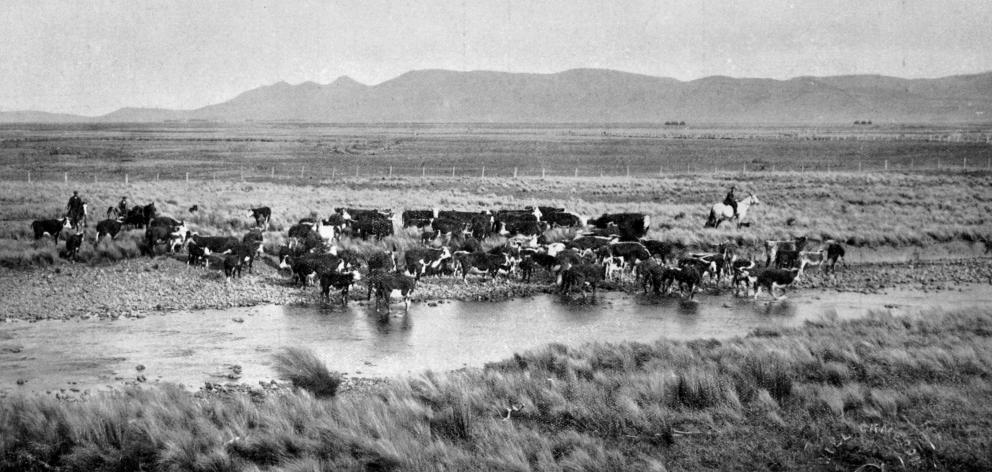
The fountains will be of the American bubbling type, and will be attractive in appearance and of sanitary design. On the motion of his Worship the City Council last night accepted the offer with thanks, and the question of the positions of the fountains was referred to the Works Committee.
•Sixty-three years of age and never saw a railway train until last week. This sounds incredible (says the Waikato Times), but it is a fact, nevertheless, for Mrs Mary Jerome, who will soon be entering on her sixty-fourth year, had not, until her arrival in Hamilton, a little over a week ago, ever set eyes on railway rolling stock.
Mrs Jerome for 57 years has lived at Te Mata, a back-country district in the hills to the south of Raglan. She is a native of Taranaki, and at the age of seven journeyed with her parents by steamer and coach to Waikato, and on to the Te Mata district, where she has been ever since, with never a journey further than the seaside hamlet of Raglan, 10 or 12 miles distant.
Last week, however, she was subpoenaed to appear as a witness in a cattle stealing case at the Supreme Court, Hamilton, and hence her new experience.
•With the shortage of male labour becoming more marked, there has been a tendency to employ girls to a greater extent in such occupations as the grocery trade (says the Wellington Post).
In some cases at Christchurch they have been engaged, not actually in the shop, but in the premises adjoining, packing and preparing orders for delivery.
Recently an interpretation was sought from the Arbitration Court as to the position of girls so employed.
The question stated was: ''Females are employed by grocery firms wholly, and the work of such females consists of making up groceries from bulk into small packets for delivery over the counter or to order of customers. The work is performed in a separate room from the shop. Are persons so employed to be classed as shop assistants, and entitled to the wages prescribed by clause 1 of the award?''
The court has now given the following interpretation: - ''Females employed as described in the question above are 'assistants', as defined in the award, and are therefore entitled to the wages prescribed by clause 1 of the award.''
- ODT, 5.10.1916.
COPIES OF PICTURE AVAILABLE FROM ODT FRONT OFFICE, LOWER STUART ST, OR WWW.OTAGOIMAGES.CO.NZ












